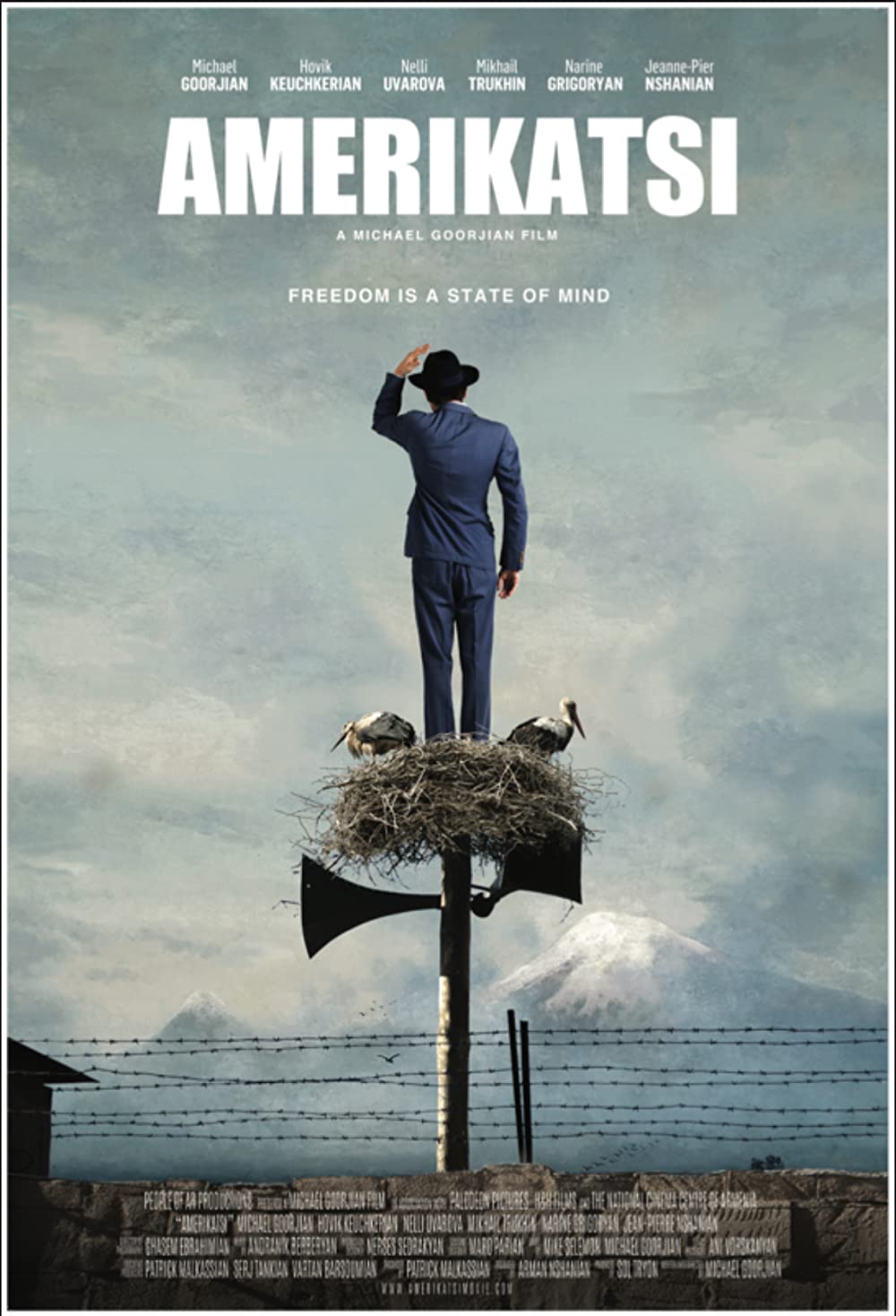
I am still greeting from watching Amerikatsi. Haven’t cried all festival, not once, but this…
Amerikatsi is the Armenian word for American. It’s what they call the main character, Charlie, an Armenian-American who comes back to rebuild Armenia in the 40s.
Where to start? Although too young to really remember it, Charlie was one of the few members of his family to survive the Armenian genocide, and was smuggled out the country to safety. He grew up his whole life in the States, speaking only a smattering of Armenian. Despite this, he was determined to return home to the country his family were driven from. So in an act of what, to us, looks like startling naivety, he returns to Soviet-controlled Armenia.
I’m gonna pause here and just say, from that beginning, I know what you are expecting. It’s what I was expecting. Genocide survivor, Stalin’s Soviet Union, this is gonna be grim. But it’s not. It’s actually quite funny and full of humour. And even when the drama does weigh heavy, it is to show the how the best in someone rises to meet it.
Charlie shows up in Soviet Armenia every inch the irritatingly cheerful American, stumbling roughshod over the minefield of unspoken rules in Soviet society. He makes a friend in a Soviet commander’s wife and is simple enough to think that is actually a good thing. Needless to say, the commander immediately finds a reason to get him locked up. Sentenced to 10 years hard labour in Siberia, he is saved when an earthquake brings down the prison walls, and he is kept on to rebuild it.
And it’s here the film really begins. Because in this darkest hour, what Charlie discovers is he can see through a crack in the wall, into the flat in the nearby building, and in watching their daily life, he feels connected to the world around him and has reason to go on living.
After the comedy of errors that brings him to this point, I was not prepared for how incredibly moving this film was about to become. So far the film had ducked and weaved between my expectations, having this sunny, optimistic, good humour at odds with its very bleak turn of events. From this point on though, it becomes this ode to the endurance of the human spirit.
The flat he can see into, it belongs to one of the prison guards, Tigran, and he learns pretty quickly that the man doesn’t want to be a guard, he wants to be a painter. He creates these beautiful paintings of Mount Ararat, but has to hide everything due to fear of Soviet censorship. Charlie watches from his cell, eating along with his meals, drinking along with his toasts, and making paintings of his own from the stone and sand around the prison, to paint alongside the man who also yearns for a softer, more beautiful world.
And through this keyhole, Charlie gets what he came to Armenia for. He sees the celebrations, with traditional songs and dances. He learns to speak Armenian, and all the manners and customs. He sees it survive. And he survives.
Amerikatsi is based on the experience of the filmmaker’s grandfather, this was his story, his life. And it is one of a light burning in the darkness, of humanity preserved against all odds, of the unbreakable human spirit.
My favourite film of the festival.